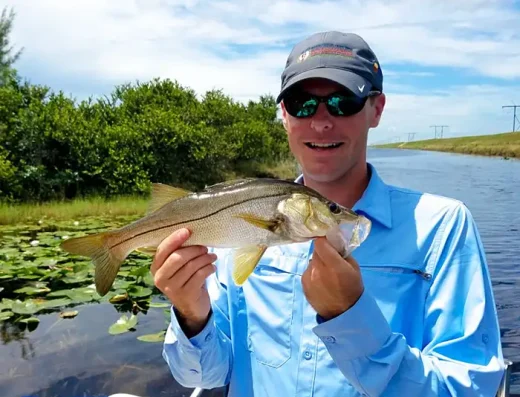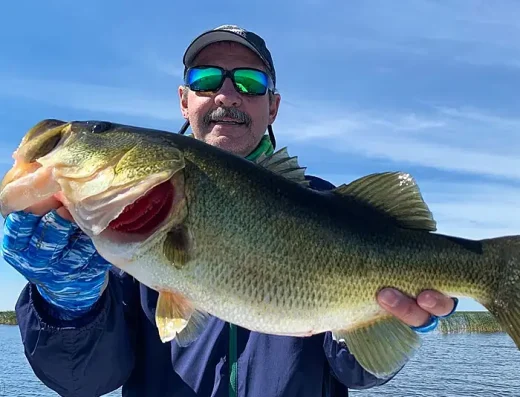Fort Lauderdale Fishing Charters
Fort Lauderdale fishing charters give anglers fast access to inshore canals, nearshore reefs, and deep Atlantic drop-offs teeming with sailfish, snapper, and mahi.
Top Rated Charters in Fort Lauderdale
TrustedFish connects anglers with proven local captains in Fort Lauderdale, Florida —no commissions, no pay-to-play listings, no BS. Every charter on our platform is invite-only, vetted for skill, local knowledge, and reputation. If they’re listed, they’ve earned it.
Fort Lauderdale, FL Fishing Guide
Fort Lauderdale sits on one of the best all-around fisheries in South Florida, with charter boats running everything from half-day reef trips to full-day offshore hunts. Most guides launch from the Intracoastal or Port Everglades, putting you within minutes of diverse waters—no long runs needed. Inshore fishing here means working the canals, seawalls, and bridges for snook, tarpon, jacks, and mangrove snapper. These areas produce year-round, especially on moving tides with live bait like pilchards or mullet.
Head just a couple miles out, and you’re on the reefs—perfect for targeting yellowtail, mutton snapper, grouper, and kingfish. Most reef fishing happens in 60 to 120 feet of water, often using live bait on knocker rigs or drifting with cut bait. From there, it’s a short push to deep sea territory. The Gulf Stream swings in close off Fort Lauderdale, bringing bluewater species like mahi, blackfin tuna, and wahoo within range. Sailfish are the winter highlight, with kite fishing being the go-to technique.
Local captains offer everything from shared four-hour reef trips to private eight-hour offshore runs. Fort Lauderdale deep sea fishing is solid nearly year-round, but spring and fall migrations bring some of the best action. For families, calm-water half-day inshore trips offer steady bites and good variety. For hardcore anglers, trolling and live bait drifting offshore keeps things exciting. Whether you’re fishing canals, reefs, or the edge of the Stream, Fort Lauderdale offers quick access to a full range of saltwater action.
Fishing Seasons in Fort Lauderdale
Spring
Spring lights up the offshore scene with mahi, sailfish, blackfin tuna, and kingfish active just outside the reef line. Inshore, snook and tarpon get more aggressive as water temps climb. This is a prime time for mixed-bag charters—cover reef and deep water in a single trip.
Summer
Mahi run strong in summer, especially after storm fronts. Look for floating debris or weedlines offshore. Inshore, early mornings and evenings produce snook, jacks, and even some juvenile tarpon. Night fishing under dock lights is a local favorite for consistent bites.
Fall
Fall brings back the bait runs, and with them come kingfish, sailfish, and blackfin tuna just a few miles out. It’s also one of the best times to target tarpon inshore as they follow the mullet schools. Bottom fishing stays solid on the nearshore reefs.
Winter
Winter is peak sailfish season, with kite fishing in 100–200 feet of water drawing big strikes. Snapper and grouper hold strong on the reefs. Inshore, snook slow down but sheepshead and mangrove snapper take over. Live shrimp near structure does the trick.
Gamefish in Fort Lauderdale
- Snook – 5–15 lbs Caught year-round in canals and around bridges; live bait (mullet, pilchards) on circle hooks works best near structure on moving tides.
- Tarpon – 30–100+ lbs Found in canals and inlets; best in spring and fall. Target with live mullet or crabs on drift rigs, especially near dusk or dawn.
- Sailfish – 30–70 lbs Peak in winter; targeted with live goggle-eyes or pilchards on kites in 100–200 ft of water. Often caught within 3–5 miles of shore.
- Mahi-Mahi – 5–30 lbs Most common spring through fall offshore. Look for weedlines or debris in 300–600 ft. Trolled lures or live bait get the job done.
- Blackfin Tuna – 10–25 lbs Spring and fall around the edge of the Gulf Stream. Troll feathers or small lures; live chum works well near rips or drop-offs.
- Yellowtail Snapper – 1–4 lbs Caught year-round on reefs in 60–100 ft using cut bait and chum slicks. Best on light tackle with small hooks.
- Mutton Snapper – 5–15 lbs Targeted near structure or reef edges with live pinfish or ballyhoo on the bottom. Spring and fall best.
- Grouper (black and red) – 5–20+ lbs Hold tight to reef ledges and wrecks. Use heavy tackle and live bait like pinfish or grunts. Best in cooler months.
- King Mackerel – 10–30 lbs Common spring and fall nearshore. Troll live baits or spoons around reefs and wrecks in 80–120 ft.
Fort Lauderdale Fishing FAQs
Do Fort Lauderdale fishing charters include licenses and gear?
Yes, most Fort Lauderdale fishing charters provide all necessary licenses, rods, reels, bait, and tackle. You just show up ready to fish.
What types of fishing trips are most popular in Fort Lauderdale?
Half-day reef trips and full-day offshore charters are both popular. Inshore canal trips are also common, especially for families or night fishing.
Where do most charters depart from in Fort Lauderdale?
Most trips leave from marinas along the Intracoastal Waterway or near Port Everglades. Some captains also launch from nearby Dania Beach or Pompano.
Is deep sea fishing good in Fort Lauderdale?
Yes—deep sea fishing is excellent here, with mahi, tuna, wahoo, and sailfish available year-round, often just 3–6 miles offshore thanks to the nearby Gulf Stream.
Can I catch tarpon in Fort Lauderdale?
Absolutely. Tarpon are caught in the canals and inlets, especially in spring and fall. Night trips around dock lights can be productive too.
What's the best season to fish Fort Lauderdale waters?
Winter is best for sailfish, spring for blackfin and mahi, and fall for mullet-run action. That said, there’s always something biting.
Are Fort Lauderdale fishing charters family-friendly?
Yes—many captains run kid-friendly trips focused on steady action in calm inshore waters, often with smaller gear and lighter tackle.
How far offshore do charters go?
Reef trips stay within 1–3 miles, while deep sea trips typically run 5–15 miles. Gulf Stream access is close, so runs are relatively short.
What kind of bait is commonly used around Fort Lauderdale?
Live bait like pilchards, mullet, goggle-eyes, and shrimp are staples. Offshore, trolling with skirted ballyhoo or using live bait on kite rigs is common.



